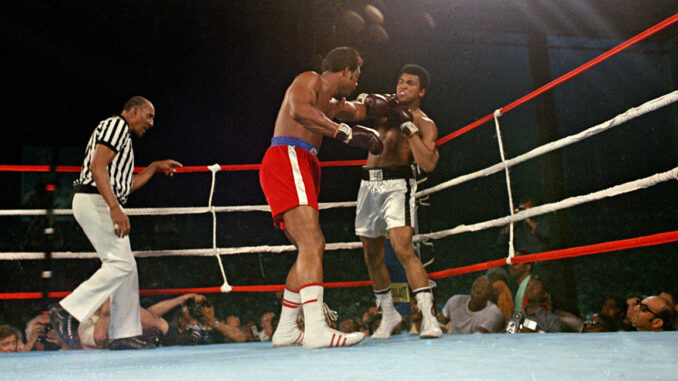
Oct. 24
1537: Jane Seymour, the third wife of England’s King Henry VIII, died 12 days after giving birth to Prince Edward, later King Edward VI.
1861: The first transcontinental telegraph message was sent by Chief Justice Stephen J. Field of California from San Francisco to President Abraham Lincoln in Washington, D.C.
1945: The United Nations formally came into existence as the Charter of the United Nations, ratified by 29 nations, took effect.
Oct. 25
1929: Former Secretary of the Interior Albert B. Fall was convicted of accepting bribes in exchange for oil field leases at Teapot Dome in Wyoming and Elk Hills and Buena Vista oil fields in California as a result of the “Teapot Dome Scandal.”
1859: Radical abolitionist John Brown was tried in Charles Town, Virginia, for his failed raid on Harpers Ferry.
Oct. 26
1774: The First Continental Congress adjourned in Philadelphia.
1825: The Erie Canal opened in upstate New York, connecting Lake Erie and the Hudson River.
1881: Four lawmen, including Wyatt Earp and Doc Holliday, exchanged gunfire with five outlaws, killing three of them, at the “Shootout at the O.K. Corral” in Tombstone, Arizona.
Oct. 27
1787: The first of the Federalist Papers, a series of essays calling for ratification of the United States Constitution, was published.
1914: Author-poet Dylan Thomas was born in Swansea, Wales.
2004: The Boston Red Sox won their first World Series since 1918, sweeping the St. Louis Cardinals in four games.
2013: Lou Reed of the Velvet Underground died at age 71.
Oct. 28
1636: The General Court of Massachusetts passed a legislative act establishing Harvard College.
1726: The original edition of “Gulliver’s Travels,” a satirical novel by Jonathan Swift, was first published.
1858: Rowland Hussey Macy opened his first New York store at Sixth Avenue and 14th Street in Manhattan.
1886: The Statue of Liberty, a gift from the people of France, was dedicated in New York Harbor by President Grover Cleveland.
1922: Fascism came to Italy as Benito Mussolini took control of the government.
2022: Tesla CEO Elon Musk took control of Twitter for $44 billion after a protracted legal battle and months of uncertainty.
Oct. 29
1618: Sir Walter Raleigh, the English courtier, military adventurer and poet, was executed in London for treason.
1787: The opera “Don Giovanni” by Wolfgang Amadeus Mozart had its world premiere in Prague.
1929: “Black Tuesday” descended on the New York Stock Exchange. Prices collapsed amid panic selling and thousands of investors were wiped out as America’s Great Depression began.
Oct. 30
1885: Poet Ezra Pound was born in Hailey, Idaho.
1938: The radio play “The War of the Worlds,” starring Orson Welles, aired on CBS.
1961: The Soviet Union tested a hydrogen bomb, the “Tsar Bomba,” with a force estimated at 50 megatons.
1974: Muhammad Ali knocked out George Foreman in the eighth round of a 15-round bout in Kinshasa, Zaire, known as the “Rumble in the Jungle” to regain his world heavyweight title.
